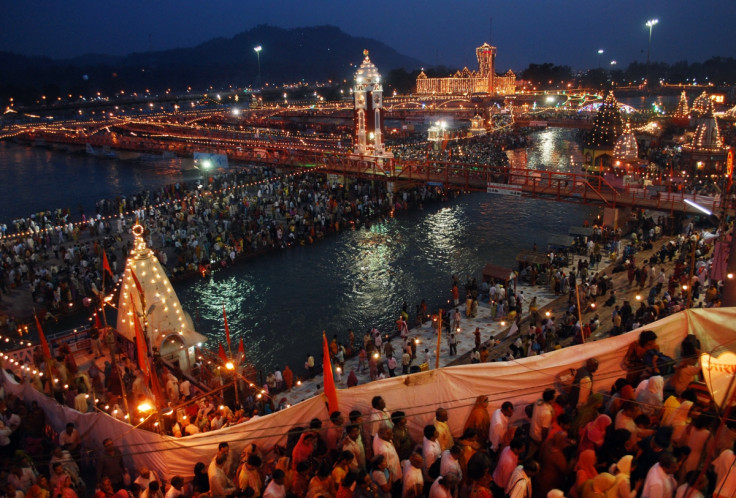India's Ganges River Abounds in Life-Threatening Bacteria

The Ganges River in India is full of drug-resistant bacteria, also called superbugs, with their levels reaching peak during the annual human pilgrimages, a new study shows.
Experts at Newcastle University, UK, and the Indian Institute of Technology in Delhi (IIT-Delhi) sampled water and sediments at seven sites in Rishikesh and Haridwar, two important pilgrimages along the Upper Ganges River in the foothills of the Himalayas.
Samples were taken in May and June when thousands of devotees throng to these places to take a dip in the holy waters of the Ganges and when human activity reduces the water quality at these pristine sites.
The levels of superbugs in the water were found to be 60 times greater than other times of the year, according to the findings published in the journal Environmental Science and Technology.
Researchers have warned that during the pilgrimage season, the Ganges contains a resistance gene called blaNDM-1 that promotes life-threatening bacteria.
"The specific resistance gene we studied, called blaNDM-1, causes extreme multi-resistance in many bacteria, therefore we must understand how this gene spreads in the environment," Professor David Graham, an environmental engineer at Newcastle University said in a statement.
"If we can stem the spread of such antibiotic resistant genes locally – possibly through improved sanitation and waste treatment - we have a better chance of limiting their spread on larger scales, creating global solutions by solving local problems," he said.
Human Impact Huge
The team found that the levels of the resistance gene in the Upper Ganges water were 20 times higher per capita during the pilgrimage season than at other times.
The research was aimed at understanding the spread of drug resistance due to a specific human activity.
"The bugs and their genes are carried in people's guts. If untreated wastes get into the water supply, resistance potential in the wastes can pass to the next person and spiralling increases in resistance can occur," professor explained.
"What humans have done by excess use of antibiotics is accelerate the rate of evolution, creating a world of resistant strains that never existed before.
"Through the overuse of antibiotics, contamination of drinking water and other factors, we have exponentially speeded-up the rate at which superbugs might develop," he added.
Superbugs Threaten Globe
Researchers hope that their finding prompts public action to improve waste management and local sanitation to protect key pilgrimage sites.
However, Graham argues that the spread of drug resistance gene is a global issue and policymakers need to recognise the importance of clean drinking water.
"This isn't a local problem – it's a global one," he said.
First identified in surface waters in New Delhi, blaNDM-1 and its new variants have been found elsewhere in the world.
© Copyright IBTimes 2025. All rights reserved.





















